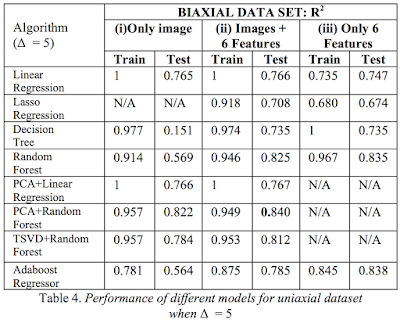S. Swaminathan, T. Shah, B. Sirkeci-Mergen, and O. Keles, “MachineLearning Models for Predicting Fracture Strength of Porous Ceramics and Glasses,” Proceedings of the 2018 International Conference on Data Science, (2018) pp. 147–150.
Abstract – One of the crucial factors that determine the quality of a material is its ability to withstand stress. Classical methods to analyze fracture stress take into account all possible combinations of effective factors and this makes the process extremely tedious and time-consuming. In this work, we propose to utilize machine learning in combination with training data generated using finite element method. The specific goal of this paper is to develop a model for the maximum geometric factor, which determines the maximum stress that a material can handle without any failure under uniaxial and biaxial tensile loads. The best model is developed when the material pixels are subsampled at a rate 1/25, and feature sets containing subsampled pixels are used as inputs to PCA and then to random forest models.
Keywords: finite elements, fracture stress, machine learning, mechanical behavior.

